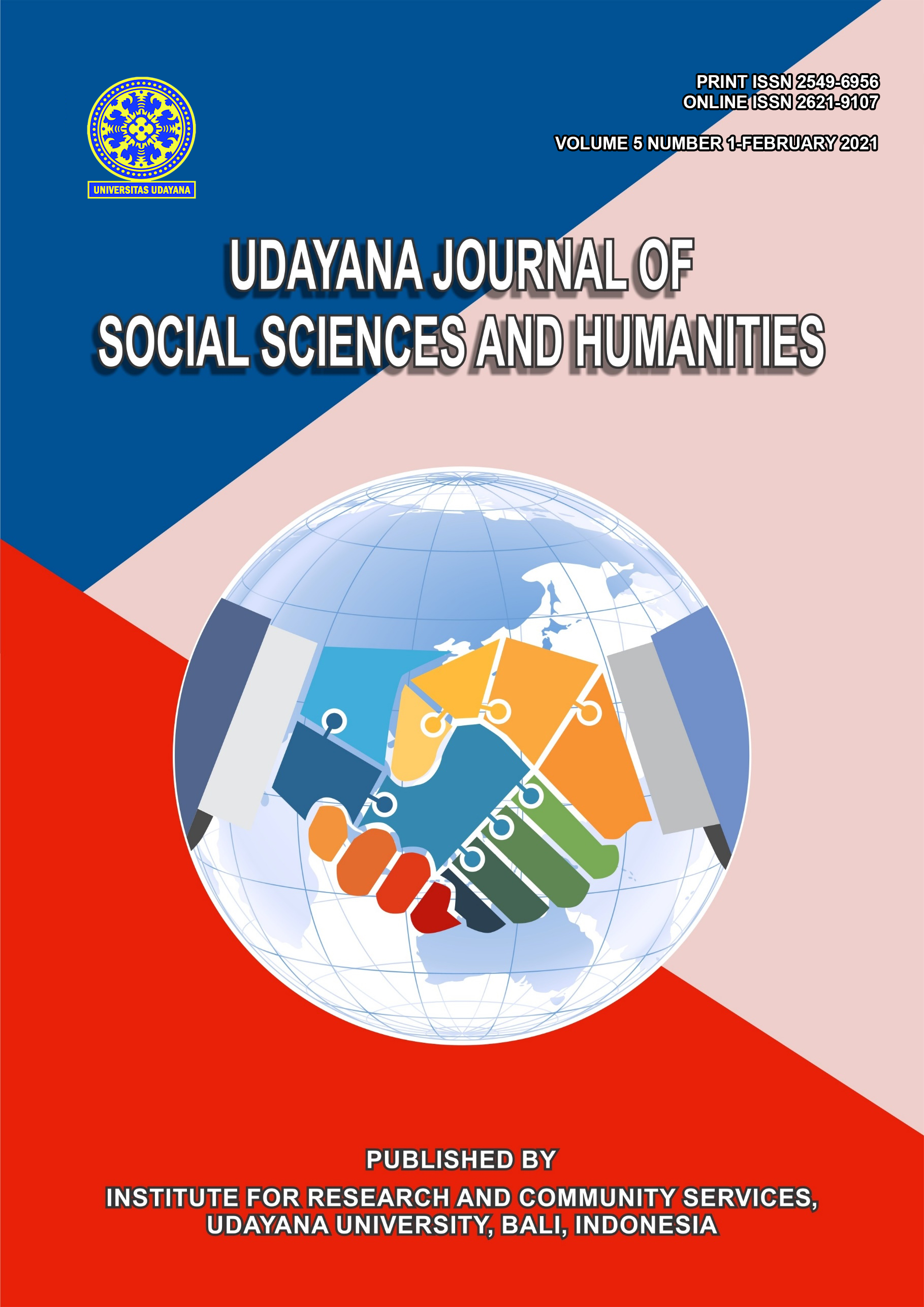Love and Belonging Needs in John Green’s The Fault in Our Stars
Abstract
The anxiety of being treated differently unlike others is one of the myriad uncomfortable feelings which may be understood by cancer sufferer. The present study aimed to expose the needs of two cancer sufferers who loved each other. They are the main characters of the Fault in Our Stars namely Hazel and Augustus. Therefore, the researchers addressed two questions: How are the love and belonging needs of Hazel and Augustus portrayed in John Green's The Fault in Our Stars? And what are the impacts of fulfilling love and belonging needs toward Hazel and Augustus as it is portrayed in John Green’s novel The Fault in Our Stars? This study applied a qualitative approach namely content analysis. The data were analyzed and interpreted by using the hierarchy of needs which focused on love and belonging needs. The result exposed that Hazel and Augustus yearn for fulfilling their love and belonging needs instead of the other needs such as physiology, safety, self-esteem, and self-actualization. It affected significantly to their life which changed them to be more optimistic.
Downloads
References
[2] Carling, T., & Udelsman, R. (2014). Thyroid cancer. Annual review of medicine, 65, 125-137.
[3] Cofer, C. N., & Appley, M. H. (1964). Motivation: Theory and research.
[4] Creswell, J. W. (2007). Qualitative Inquiry & Research Design: Choosing Among Five Approach (Second ed.). Thousand Oaks: Sage Publications.
[5] Dickerson, J. L. (2002). Natalie Portman: Queen of Hearts: ECW Press.
[6] Feist, J., & Feist, G. (2012). Theories of Personality. Boston: McGraw Hill.
[7] Fiedhawatie, S. D. (2013). Maslow's Hierarchy of Needs Manifested by the Main Character in the Forrest Gump The Movie. Bachelor Thesis, Universitas Brawijaya, Malang.
[8] Green, J. (2012). The Fault in Our Stars. New York: Dutton Books.
[9] Guimón, J. (2004). Relational mental health: Beyond evidence-based interventions: Springer Science & Business Media.
[10] Junaidi, A. N. (2014). Psychological Analysis of Jay Gatsby's Life in Francis Scott Fitzgerald's "The Great Gatsby" (Viewed from Abraham Maslow Hierarchy of Needs Theory). Bachelor Thesis, Universitas Negeri Maulana Malik Ibrahim, Malang.
[11] Luetke, A., Meyers, P. A., Lewis, I., & Juergens, H. (2014). Osteosarcoma treatment–where do we stand? A state of the art review. Cancer treatment reviews, 40(4), 523-532.
[12] Maria, G. I. (2014). The Unfulfilled Love Need in the Main Character of Anton Chekov's Misery. Bachelor Thesis, Universitas Brawiyaya, Malang.
[13] Maslow, A. (2008). Motivation and Personality. New York: Herper.
[14] Mawaddah, S. (2010). A Main Character Analysis of The Alchemist by Paulo Coelho Using Hierarchy of Human Needs of Abraham H. Moslow's Theory. Bachelor Thesis, Universitas Islam Syarif Hidayatullah, Jakarta.
[15] Ottaviani, G., & Jaffe, N. (2009). The epidemiology of osteosarcoma Pediatric and adolescent osteosarcoma (pp. 3-13): Springer.
[16] Prewitt, J. (1993). Facing Oblivion. The Southern Review, 29(3), 481.
[17] Reeve, J. (2014). Understanding motivation and emotion: John Wiley & Sons.
[18] Schacter, D., Gilbert, D., Wegner, D., & Hood, B. M. (2011). Psychology: European Edition: Macmillan International Higher Education.
[19] Setiawan, A. (2018). Needs Hierarchy in T. B. Silalahi's Novel Toba Dreams. Paper presented at The 1st Annual International Conference on Language and Literature (AICLL).
[20] William, B. A. (1974). Theories of Personality. New York: MacMillan.






